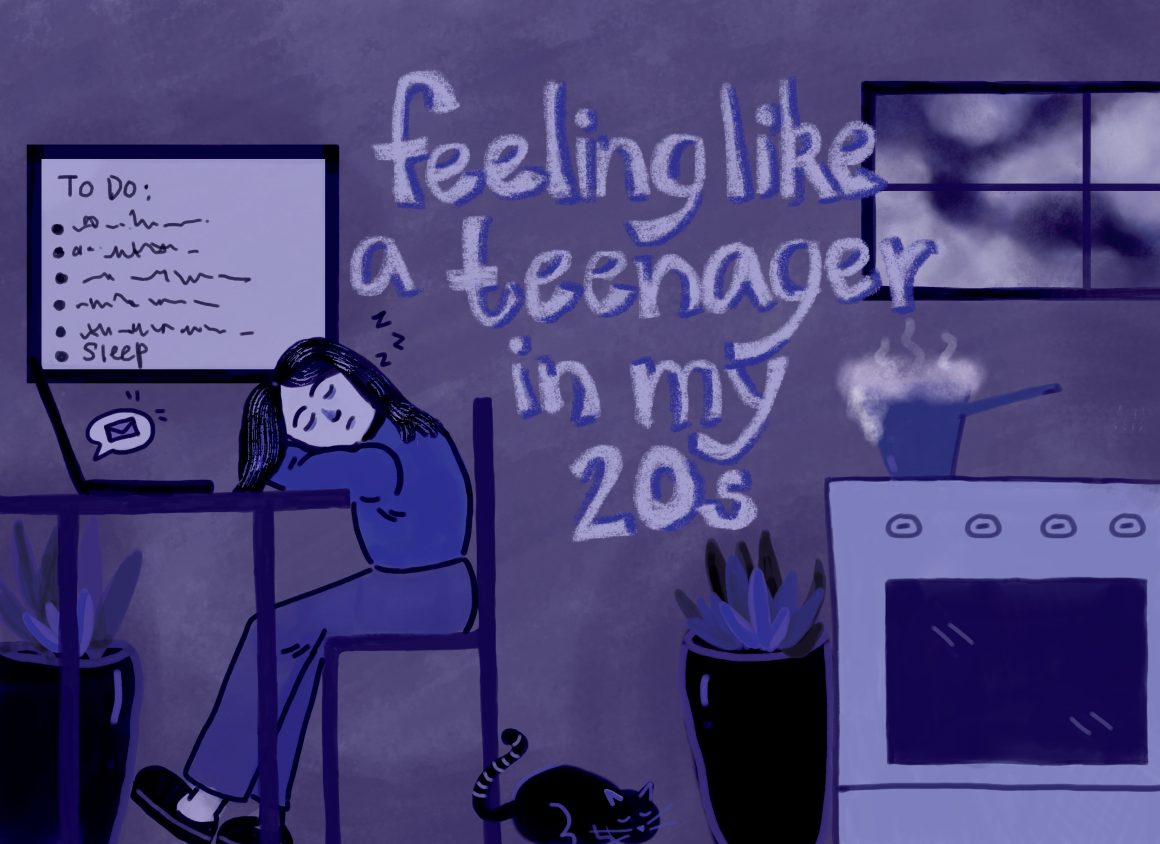
Feeling like a teenager in my 20s
By Ayesha Shozib, November 6 2023—
I remember when I was a teenager, 17 or 18 years old, I could not wait to turn 20. I’ll feel, act and be treated like an adult. I thought so naively. Then when I finally did, it was the exact opposite. My world felt small and claustrophobic, like it was collapsing in on itself and I did not feel so different as when I was 17. There was no added level of respect given to me, no sense of adulthood dawning on me, it was like nothing was different and I hated it. I felt like I was walking in place. After talking to my friends who are around the same age as me, we collectively realized that this is not an isolated feeling. Then, I spoke to my sister, five years my senior, and what she said to me confused me. She said, verbatim:
“Your 20s are the best and worst years of your life, brace yourself.’
Why are the post-teenage years so infamous? Is it because we are closer to adulthood than ever? For me, as a Pakistani woman, adulthood has always been a confusing arena to be in. In South Asia, the concept of ‘growing up’ is met with a strange gaze, as children in a Desi (a loose term used to refer to South Asians and the diaspora) household we are often looked at as children even when we reach an age of maturity. It’s normal for Desi kids to live at home well into their 20s, usually until they get married. No matter how old we get, we are often thought of as children by the adults around us so it’s fairly easy for us to fall into this hole of constantly feeling (and sometimes acting) like kids who don’t know any better.
This is not to say Desi culture is bad for keeping their children under this umbrella, one of the most beautiful and unique aspects of my culture is the importance it places on family and the protection that our parents can provide. However, the impact it has on children going into adulthood and trying to find their own way without the shelter and presence of their parents is not at all easy. The constant pressure of having to figure yourself out as soon as your teenage years are over while also adhering to the identity that is placed on you can be confusing.
At the same time, the experience of feeling lost or stuck in your 20s is not just a common occurrence in my culture and society as a South Asian. The same can be said of any and all societies which is why it has become such a large phenomenon. People all around the world go into their 20s not really knowing who they are or where they want to go because they are often shielded from the reality of ‘adulthood’ for most of their lives only to be thrust into it seemingly out of nowhere. From the age of 20 until at least the age of 27, we wonder what we want to do with our lives and it’s scary. How do we make these decisions without having any knowledge of whether it will work?
I always thought that by the time you turn 25, you have your life sorted out and you know everything that there is to know about yourself and the world. But now, as a 22-year-old, I find it impossible to feel any sort of concreteness as to what I’ll be doing in three years time, let alone 10. This is why, I think, young adults cling to whatever they can to delay entering the actual adult world (a.k.a. the workforce). We go to university, go to grad school, travel and partake in activities that generally allow us to delay that phase of our lives because we are so fearful of messing up. This mindset and trend among us 20-something-year-olds is often what makes us feel stuck in one place, we dread the future so much that it seems easier to just stay where we are for as long as possible even if it does make us feel like we’re stuck.
Now in my early 20’s, I see what my sister meant, growing older is never an easy experience. With expectation and reality knocking on your front door with brochures of the future, it’s easy to fall into a cycle of overwhelming emotions like fear and anxiety but it’s also coupled with excitement as well which makes it even more confusing. Having said that, what comforts me is that I know I am not alone in this, we are all in the same boat when it comes to the existential crisis that is our 20s and I hope this sense of community makes you feel just a tiny bit of solace too.
This article is a part of our Voices section and does not necessarily reflect the views of the Gauntlet editorial board.
